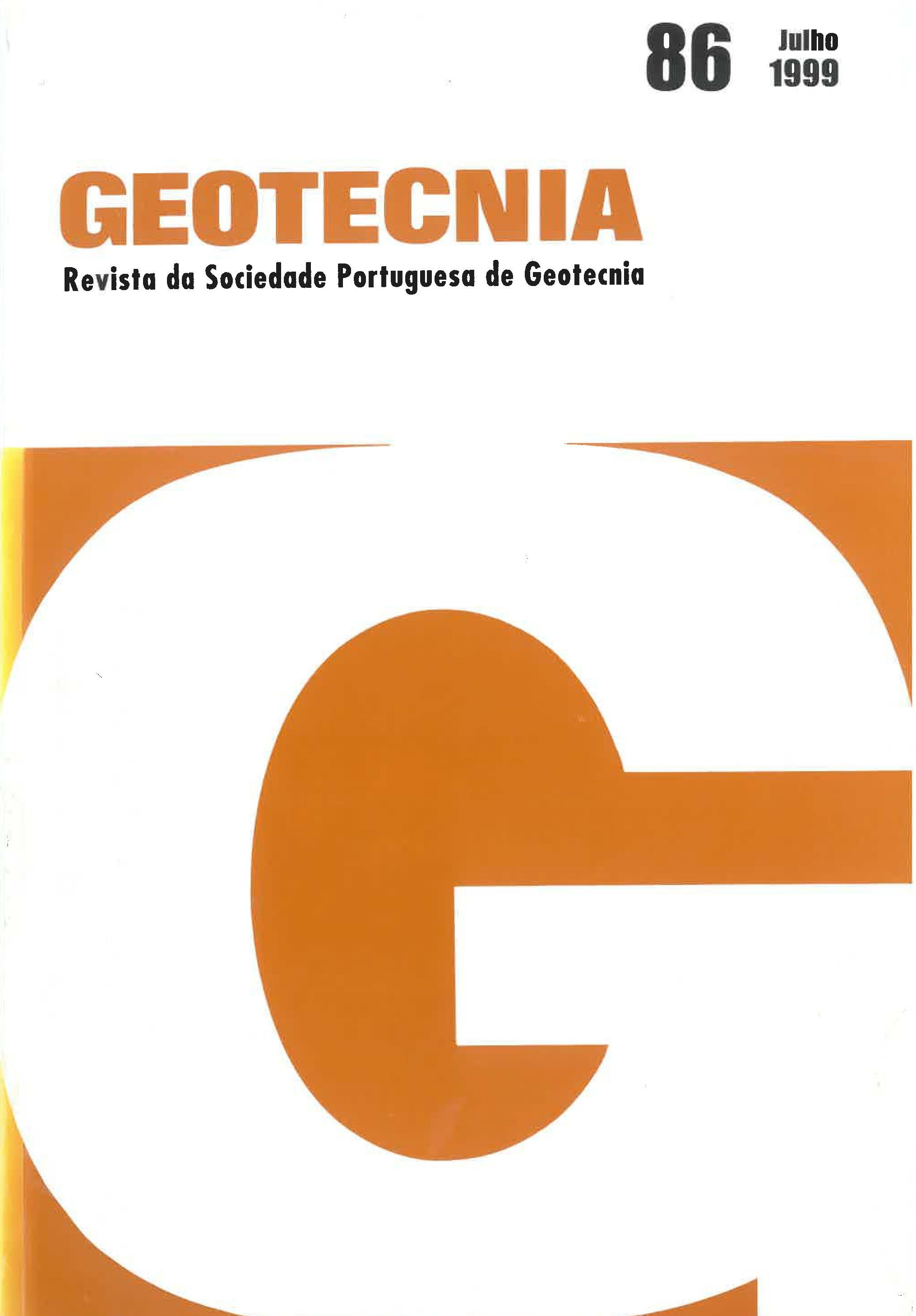Novos desenvolvimentos na interpretação de resultados de ensaios de campo de molinete
DOI:
https://doi.org/10.14195/2184-8394_86_1Resumo
Neste artigo propõem-se um método que permite determinar os parâmetros característicos de tensão-deformação, incluindo o módulo de corte (G), a partir de resultados dos ensaios de molinete. Nesse sentido analisam-se mais de 200 ensaios de molinete, que se realizaram nos lodos argilosos da Azambuja Os resultados obtidos mostram que se devem corrigir os dados de campo em função da rigidez da mola da cabeça do molinete e que é necessário alterar os métodos de ensaio aplicados correntemente de modo a possibilitar a determinação dos parâmetros característicos de tensão-deformação. Numa primeira abordagem apresenta-se uma comparação entre os parâmetros obtidos a partir dos resultados dos ensaios de molinete e os parâmetros correspondentes obtidos em ensaios de laboratório, triaxiais e de corte simples (que se realizaram em amostras não perturbadas, recolhidas nos depósitos lodosos). Subsequentemente usaram-se esses parâmetros em análises de elementos finitos (EF) para simular o ensaio de molinete (com simulações bidimensionais, 2D, e tridimensionais, 3D) e a rotura das formações lodosas de fundação (apenas com simulação 2D) que ocorreu durante a construção de um aterro na Azambuja




